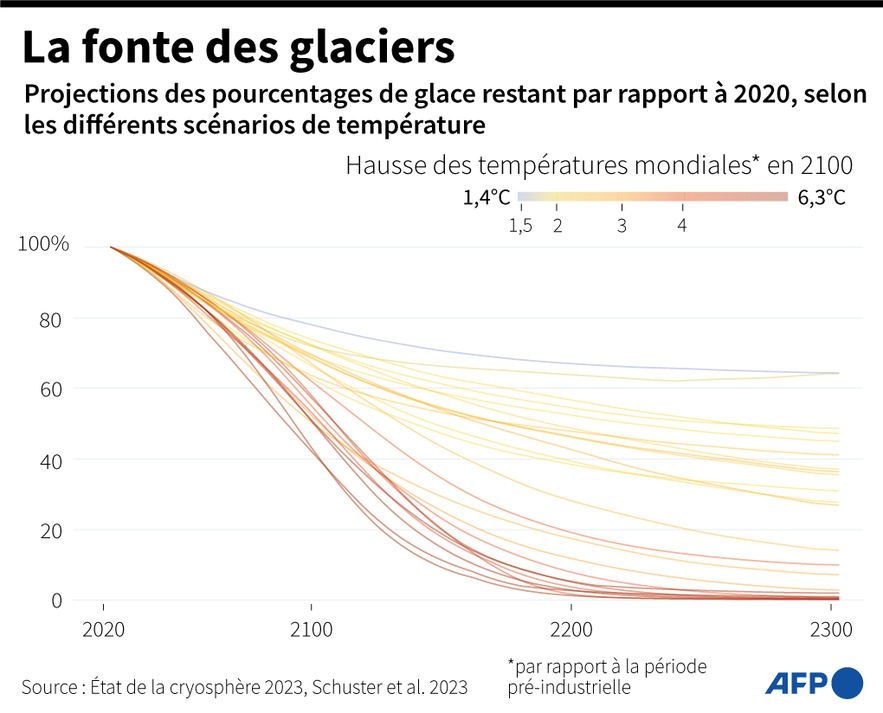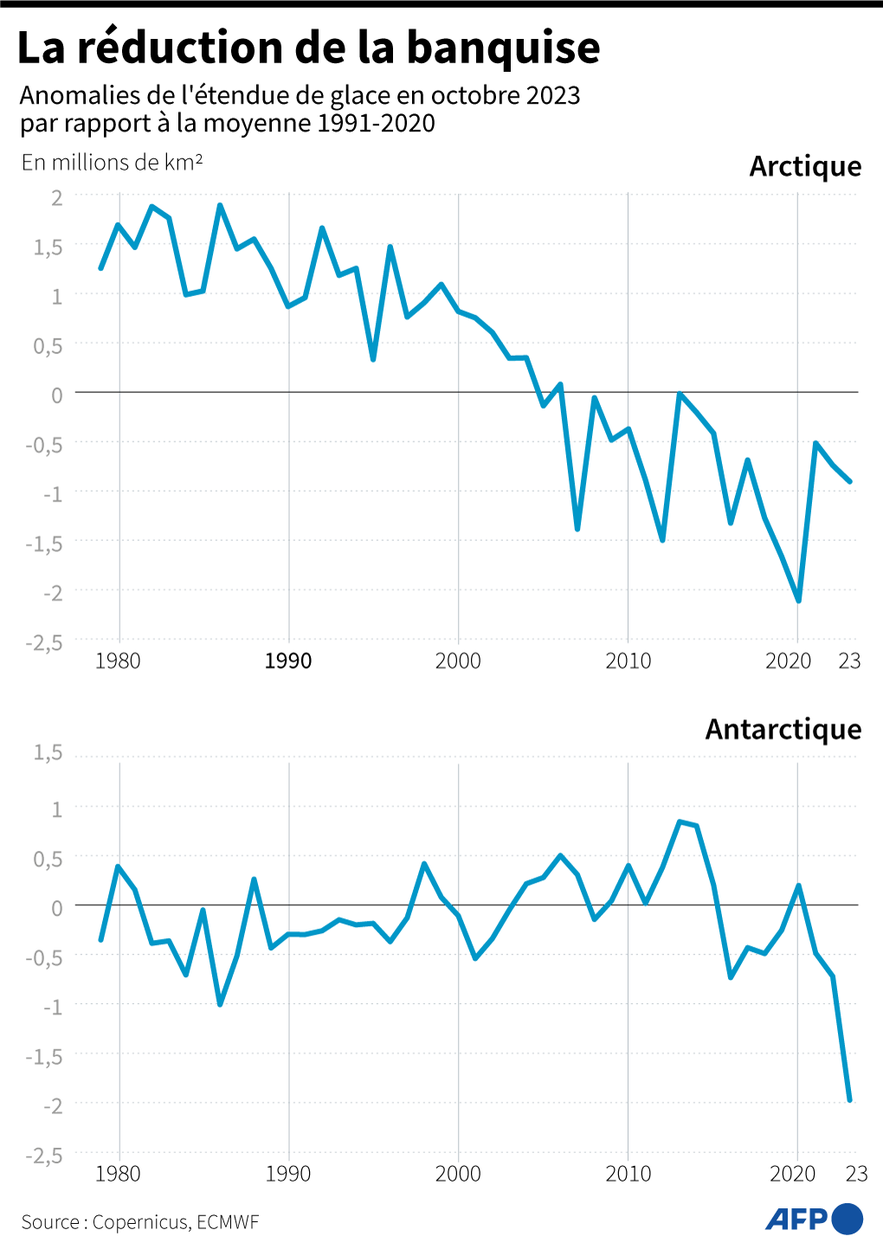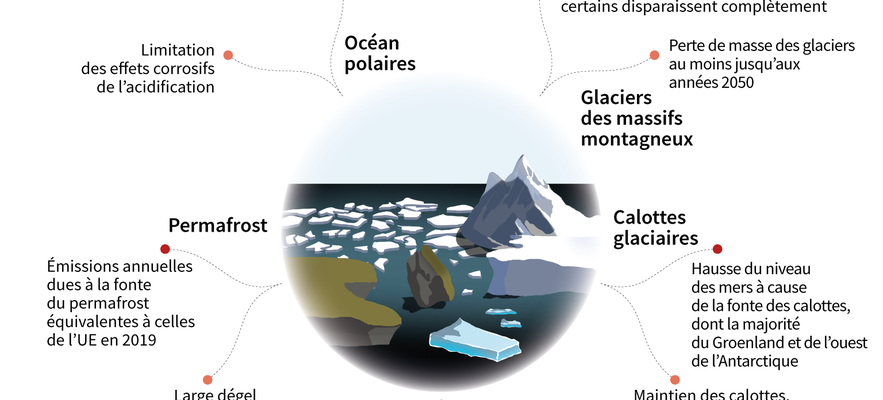The observation is very worrying. An annual report on icy regions, published Thursday, November 16, shows how the degradation of glaciers, poles and permafrost “will have rapid, irreversible and disastrous consequences throughout the world”. This assessment, carried out by the NGO International Cryosphere Climate Initiative, emphasizes the need to maintain global warming at a maximum of 1.5° above pre-industrial levels.
The cryosphere, defined as all regions of the world covered by ice at least part of the year, is particularly vulnerable to rising temperatures, which causes melting of ice and acidification of waters harmful to life. Marine.
Effects on the cryosphere of global warming of 1.5° or 2°
© / AFP
“Some parts of the Arctic or the North Atlantic Ocean reached temperatures 4° to 6° above normal,” the report insists. The NGO reports a year of “climatic disasters”, and takes as examples broken records for the Antarctic sea ice, fires which affected Canadian permafrost, or even the loss of 10 % of Swiss glaciers for two years. “None of these tragic events surprised us,” say seven scientists in their foreword.
The dangers of 2° warming
The international scientists behind this publication warn of the effects of global warming of 2°C, which would have numerous deleterious effects on the climate and biodiversity, cause potential climatic disasters and affect living conditions. everywhere on the planet.
The thawing of permafrost, a term which designates soils whose temperature remains below 0 degrees for more than two years, would thus have the effect of releasing carbon dioxide and methane, emissions which contribute to the increase in temperatures .

Projection of the size of glaciers based on global warming
© / AFP
If warming reaches 2°, the melting of ice caps will lead to “a significant, potentially rapid and irreversible rise in ocean levels”, warn the authors, who urge COP28 participants to make decisions to keep global warming at 1 .5 degree. As such, they call for establishing a plan to exit fossil fuels and developing financial mechanisms, particularly to support climate action.

Reduction in the size of the sea ice since 1980
© / AFP
The release of the report, which was reviewed by dozens of international scientists, comes days after the UN warned that the world was failing to bring the climate crisis under control.
